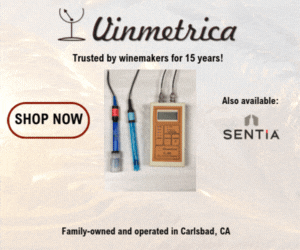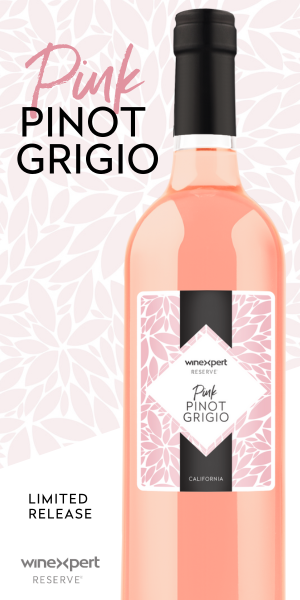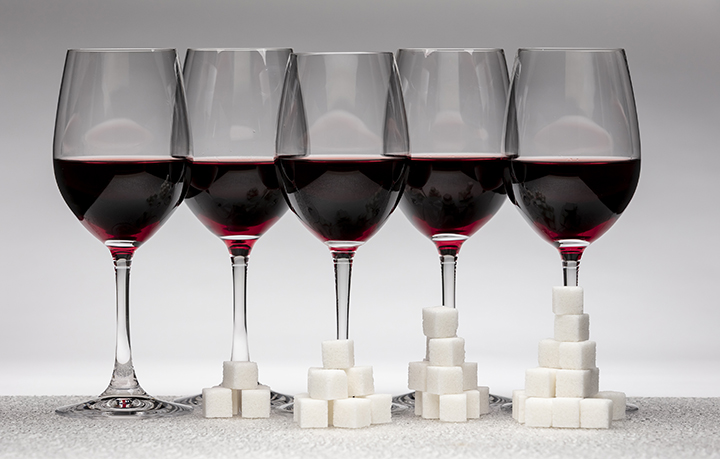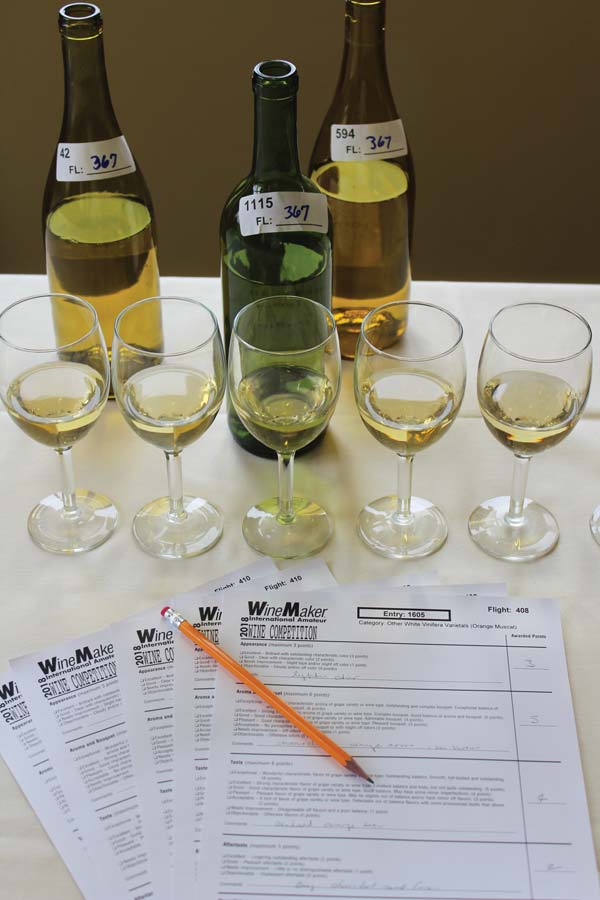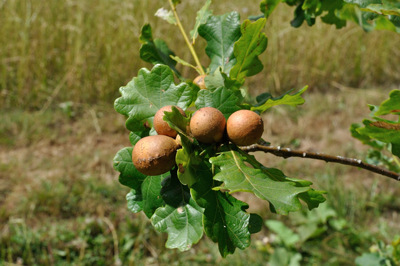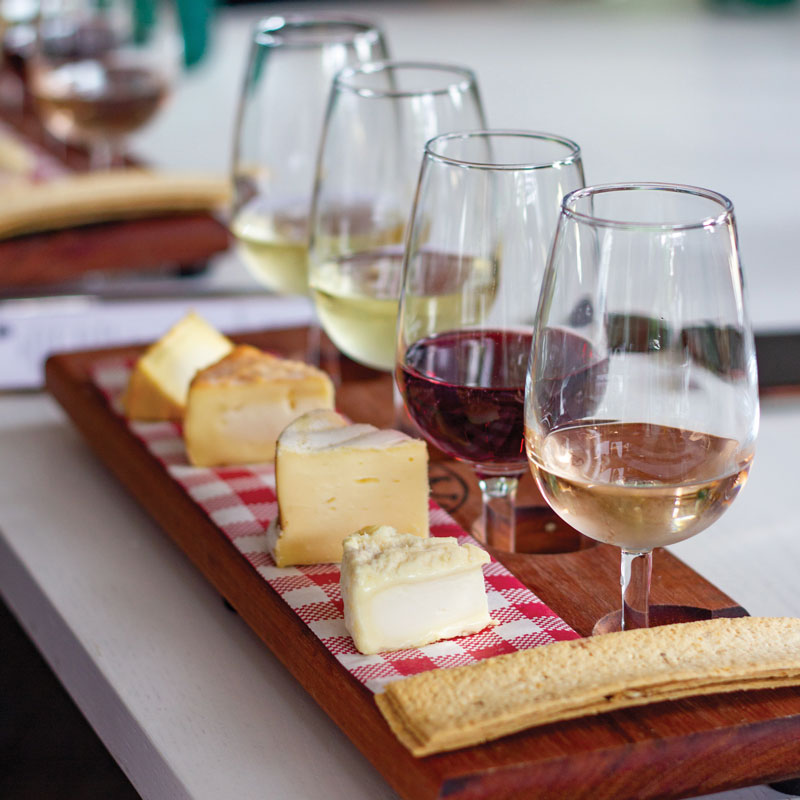Classes, Clubs, and Consultants: Getting expert help at home
Just by reading this magazine you gain access to a wealth of expert winemaking information. Add in the website you’re on now and you have even more at your fingertips. Even so, you may find that you want more in-depth or personal involvement with some specific subject about winemaking. While there are countless YouTube videos and various other web resources, quality may be uneven and may not be personally meaningful to you. Attending the annual WineMaker Magazine Conference provides personal contact with experts in the field, along with home winemaking peers. For today’s column, I will relate some of my other experiences and some of the resources I have found for direct help from classes, clubs, and consultants.
Viticultural Help
Your access to personal expert support will vary with where you live. Those of us in or near commercial winemaking regions have a rich availability of resources, while those in non-winemaking areas may have to search a bit harder. There is something out there for everyone and you can find it if you look around. I started in this direction in the late 90s after my wife and I purchased a home in Sonoma County in 1994. Our house is on 2 1⁄4 acres (0.9 ha) and we bought it with the back acre undeveloped. As we are both longtime wine lovers, I could not resist the temptation to plant some wine grapes. Even though there were very few vineyards in our area around Petaluma at that time, personal advice was available. Representatives of the Sonoma County Winegrape Commission had an information booth at the local harvest fair. I told them where my property was and they were happy to advise me that Chardonnay and Pinot Noir would be good varieties for me to consider. They knew what they were talking about, as shown by the dominance of Pinot Noir as the premier grape variety in the newest American Viticultural Area (AVA), the Petaluma Gap, that now surrounds my house. There are lots of vineyards now where there used to be very few.
Just about every county in the US has an agricultural extension office that can give you advice about growing crops in your local area. Established all the way back in 1914 in the Smith-Lever Act, the cooperative extension service is operated in each state by designated land grant universities with support from the federal government. (If you don’t know a land grant university for your state, you can find it in the “List of Land Grant Universities” entry on Wikipedia). Resources in county offices vary, of course, but your local extension agent is a good place to start if you are thinking of planting grapes. In Canada, the level of agricultural support varies across different regions, with provincial departments of agriculture typically providing extension services. In Mexico, a combination of private consultants and government offices provide agricultural extension services in rural areas.
A Higher Education
To better plan my 1⁄3-acre (0.13 ha) hobby vineyard, I enrolled in a viticulture class at Santa Rosa Junior College (SRJC), our local community college. Attending one evening a week for a semester, I learned the basics of planting and maintaining a vineyard and built my confidence in doing so. Later, as the vines began to grow, I took a semester-long class at SRJC in enology. I also took some weekend pruning classes and wine tasting courses. SRJC continues to offer associate’s degrees and certificates in viticulture and enology. Anywhere fine wine grows, you will probably find a community college with such classes. For instance, the nearby Napa Valley College has a wide range of related classes and even has a bonded teaching winery. Throughout much of California, colleges offer classes, degrees, and certificates related to vineyards and winemaking.
Just about every county in the US has an agricultural extension office that can give you advice about growing crops in your local area.
If you live near any of the places WineMaker holds conferences, you will probably find local college classes about wine. For instance, Traverse City, Michigan, where we met earlier this year boasts a campus of Northwestern Michigan College that offers a certificate program in viticulture. In Ithaca, NY, where we met previously, Cornell University (one of those land grant universities) offers an EnoCert certificate program in viticulture and enology made up of mix-and-match one- and two-day courses. In addition to a certificate program (with online options), the UC-Davis offers short courses on winemaking. A number of years ago, I took such a course titled, Varietal Winegrape Production. It was offered as a three-day block of classes and lectures in Davis, California. Even if you don’t live in a wine region, scheduling a visit for a short course or seminar (say for an extended weekend) at a place like UC-Davis or Cornell, could give you some education while also putting you in a wine region where you could spend a few days enjoying visits to nearby wineries.
Finally, with regard to classes, don’t overlook your local home winemaking supplier or grape vendor. In my area, the store I retired from — The Beverage People — continues to offer classes in viticulture and winemaking. In San Diego, California, the Curds and Wine shop offers classes and guided group winemaking projects. In Indianapolis, Indiana, the Great Fermentations store offers a Make It & Take It winemaking class. I mention these few as examples I am aware of to demonstrate the broad availability, but there are many, many more all over the US and Canada. In many related venues around North America, you can find former Technical Editor Daniel Pambianchi presenting his one-day seminar “Making Consistently Flawless Wine.” A fine list of shops and suppliers can be found in the directory pages near the back of each issue of this magazine.
Group Think
Home winemaking clubs are also great sources of peer-to-peer and expert information. Sacramento Home Winemakers is a club that often shows well in the annual WineMaker International Amateur Wine Competition. That group of dedicated home winemakers has invited me to speak to their meetings on several occasions, with 70 to 100 members showing up each time. Besides the meetings with slideshows and demonstrations, the club offers its members a variety of other learning opportunities. They have their own competitions, group winemaking projects, and organized visits to other wine regions. Closer to my home, the Garage Enologists of North County (GENCO) meets on a regular basis in Healdsburg, California. Like the Sacramento group, they have guest speakers, sponsor competitions, and organize group projects. Also near me is the Sonoma Home Winemakers group that not only offers meetings but also officially maintains a one-acre (0.4 ha) demonstration vineyard owned by the City of Sonoma. Don’t know of a club near you? A good place to start is the WineMaker club directory found at this link: https://winemakermag.com/resource/club-directory. You will find a remarkable list with more than 150 entries from Hamilton, Ontario to Honolulu, Hawaii.
Tips From the Pros
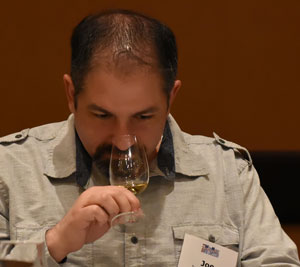
The most personal of expert winemaking knowledge comes from working alongside an experienced individual while making your wine. Depending on where you live, it will likely take some effort to find a winemaking or vineyard consultant who matches with your needs. Many such consultants, of course, focus on helping commercial growers or producers get started or improve their products. We have all heard of “flying winemakers” who cross the oceans of the world to share their knowledge. As home winemakers, we are more likely to find Subaru-driving consultants than flying ones to be within our budgets and interested in our projects (full disclosure: I drive a Subaru and consult with home wine and cider makers on an hourly or project basis). If you think you might like to engage the services of a consultant or adviser, your home winemaking supplier is once again a good place to start. Some stores maintain a bulletin board with related services offered by local providers. Ask the associates in the store. If there are consulting winemakers among their customers, they probably know their names and numbers. A few years ago at a WineMaker Conference an attendee asked me about helping him with a project that was intended to be much larger than home winemaking. Since that was outside my expertise, I came home and contacted a few expert winemakers who had been customers of mine in the shop. I found one who was currently available and interested in talking to the potential client.
Businesses that provide wine-related services may also employ or have contact with consultants. Before I became an owner at The Beverage People, I was general manager at Vinquiry, a wine-testing laboratory in Windsor, California. Along with providing chemical and microbiological analysis of wine samples, we offered a variety of consulting services. These ranged from fining trials through sensory evaluation to field work helping to set up winery laboratories. If there is a winery services business near you, check there for consulting help, too. There are also many websites that list classified ads for the wine industry. A Google search for “wine industry classified ads” pops up more than twelve million results. Narrow it down by geographic area or subject matter and you are likely to find listings for winemaking consultants, startup winery advisers, and vineyard management companies.
One final way to get the equivalent of consulting advice can be created not by paying for it, but by giving up all or most of your own pay for a while. I am talking about being a harvest intern at a winery. Those same classified ad listings noted above include “help wanted” entries covering wine-related jobs, including interns. Many internships pay about $15 an hour for two or three months of hard work at a winery during harvest. If you can arrange the time and survive on the wages, it can be a great way to learn. A few years ago, my friend and customer Barry Singer approached a local winery with an offer to work the grape crush season for nothing, just to learn. He went from there to success as a home winemaker and ultimately the owner of his own small winery. So keep reading this magazine and going to the conferences, but don’t overlook the many other ways out there to build your knowledge and skills.
